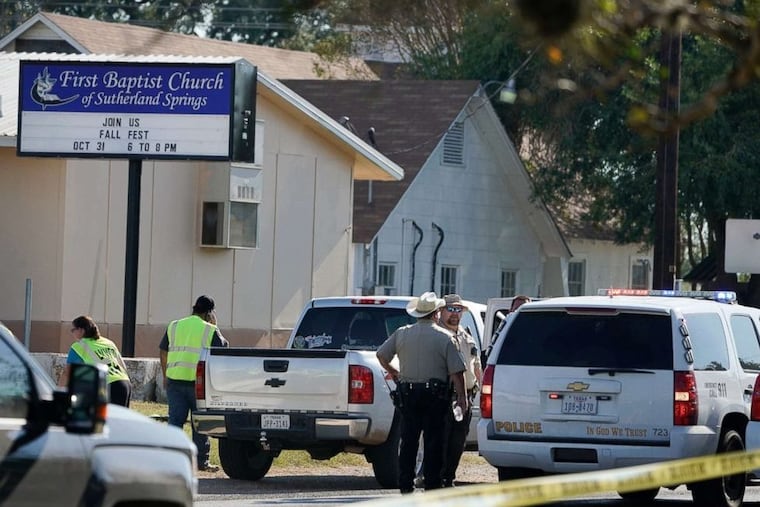How Trump uses mental health to avoid talking about gun control | Editorial
Providing adequate mental health treatment is more complex than it would be to limit gun purchases or ban rapid-fire weapons.

If President Trump really believes the massacre of more than two dozen children and adults at a Texas church was the result of "a mental health problem at the highest level," then why isn't he doing something about it?
Instead, he's riding shotgun for the NRA? He must have forgotten he's the one who rescinded an Obama administration rule that prevented people with a mental health diagnosis from buying guns. But leaving that aside, he's just wrong.
While the Texas shooter may have once run away from a mental institution, the mentally ill, about 18 percent of the adult population in America, aren't typically murderers. Rather, they are more likely to be the victims of violence.
That's one reason mental health should get more attention. But it shouldn't be a convenient whipping boy whenever gun proponents want to divert attention from the arsenals available to almost anyone with the cash to buy them, legally or not.
Mental health treatment is a very complex issue. It can't be solved as easily as it would be to limit gun purchases or ban rapid-fire weapons. It also would be expensive, might raise civil liberties questions, and requires a president who would be steadfast in getting results.
Many thought the solution was found in the 1950s, when hundreds of mostly state-run mental institutions packed with neglected patients were shut down. Communities were supposed to replace those institutions with short-term facilities and abundant outpatient services. But too few did. The results of that bad policy can be seen every day on the streets of America.
A study this year by the National Alliance for the Mentally Ill's Long-term Care Network blames the deinstitutionalization movement for increases in homelessness, suicide, and acts of violence among the severely mentally ill. Lacking adequate alternatives, many are repeatedly sent to hospitals for treatment.
One woman told NAMI that her son, who was diagnosed with schizophrenia 20 years ago, has been moved in the mental health system 62 times, with 23 hospitalizations.
"He has been arrested numerous times and has lived in shelters and on the street a minimum of six times," she said. "He has a substance-abuse problem and has been diagnosed with hepatitis and acute infections. We don't have much hope for the future."
Hope is what the mentally ill need. Instead, they get rhetoric designed to divert attention from the need to place limits on a person's ability to buy rapid-fire guns that have nothing to do with hunting, target practice, or collecting.
Instead of helping the mentally ill, Trump insists on trying to kill the Affordable Care Act, which by expanding Medicaid has made it easier for the mentally ill to get treatment. Obamacare also made it harder for employers and insurance companies to provide less coverage for a mental illness than for other treatment.
It's time to stop using mental illness as an excuse not to talk about gun control. It's time to talk about the friction between respecting a mentally ill person's rights and making sure he takes prescribed medications to prevent psychotic episodes.
That friction can be addressed by making resources available to fund the level of facilities, programs, and workers needed in every community to help the mentally ill make good decisions leading to healthier lives.
Trump opened the door to a conversation about mental illness, but then he left the room.